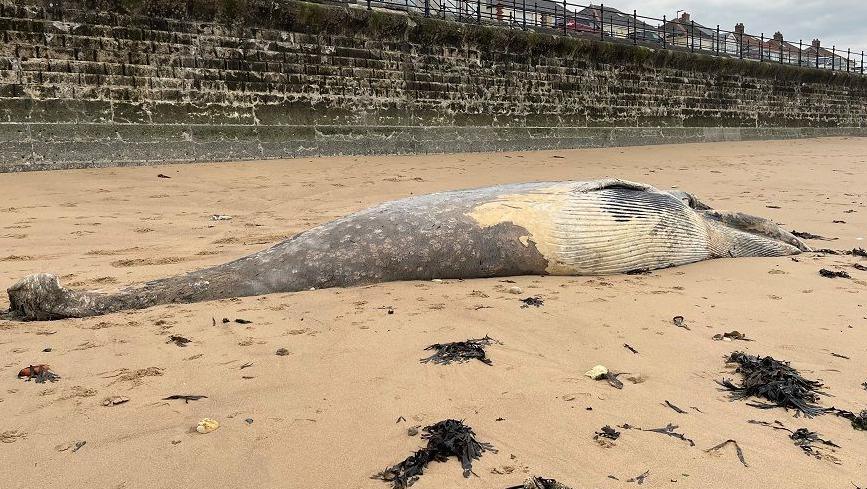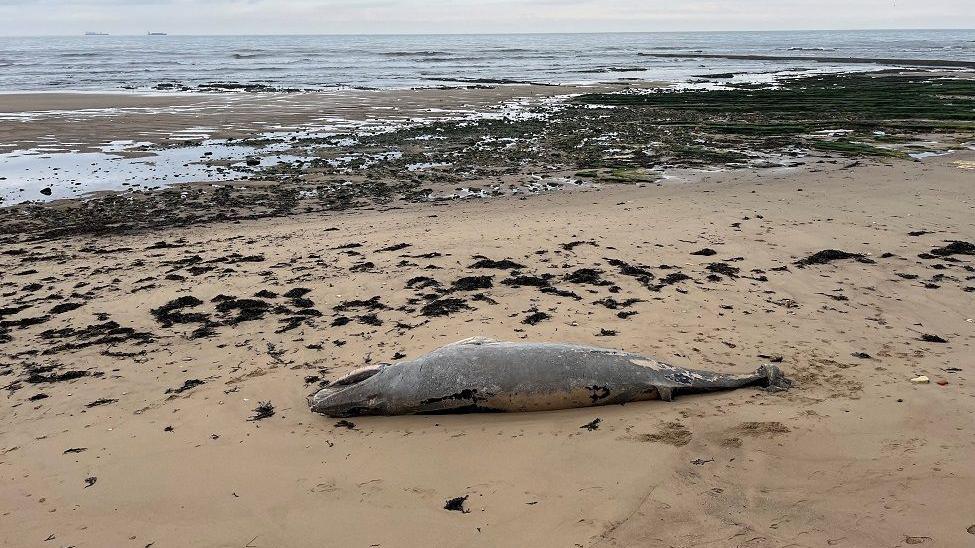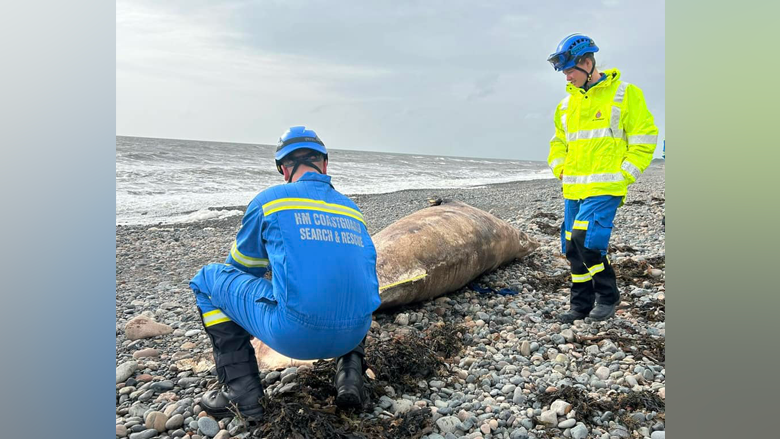Whale too decomposed to be collected, say experts

The whale was first spotted on Sunday in Hartlepool
- Published
Experts say they cannot remove a stranded dead whale from a beach.
The animal, believed to be a minke or fin whale, washed up on Hartlepool's Headland beach on Sunday and remains there days later.
Stranded dead whales should be reported to the UK Cetacean Strandings Investigation Programme (CSIP), however a spokesperson said the whale was "far too decomposed for us to justify attendance on site".
Hartlepool Council has been approached for comment.
CSIP attends whale strandings so it can carry out post-mortems to determine whether they occurred naturally or have been driven by human activity.
Rob Deaville, project manager for CSIP at the Institute of Zoology, said decomposed whales "lose pathological value" and so they would not collect the whale.
People on social media warned the whale had started to smell.

CSIP said the whale was too decomposed to be removed for a post-mortem examination
Mr Deaville said there was "no way we're ever going to know" what caused the stranding as "it's too far gone", but suggested reasons such as entanglement in fishing equipment, ship strike or underlying disease.
He added: "I can imagine the local authority will have a plan in place for disposal."
Some possibilities included landfill, incineration or being "left in situ", Mr Deaville said.
The Environment Agency said CSIP should be contacted on its hotline in the case of any stranding.
A spokesperson said: "We recommend that the animal is not touched."
Follow BBC Tees on X,, external Facebook, external, Nextdoor and Instagram, external. Send your story ideas to northeastandcumbria@bbc.co.uk.
Related topics
More stories from BBC North East and Cumbria
- Published27 August 2024
